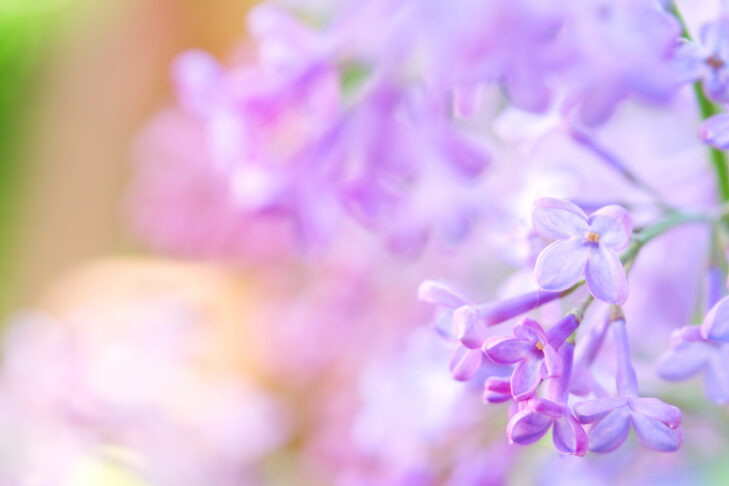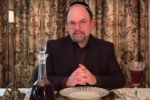This week I heard Idina Menzel sing the Four Questions. Billy Porter serenaded me with “Let My People Go.” I gleaned wisdom from Rabbis David Wolpe, Dana Benson, Amichai Lau-Lavi, Mordechai Lightstone and Sharon Brous, who delivered a short, affecting sermon. She said the story in the Haggadah is one that has “held a grip on the human imagination for thousands of years, precisely because it was never just about what happened then but has also always been about what is happening now. [The world needs to be reminded of those who are] degraded and oppressed and enslaved and have walked on that long journey toward freedom.”
All of this happened at “Saturday Night Seder,” a virtual event on YouTube this past Saturday. Jason Alexander emceed the festivities, and the likes of Beanie Feldstein, Henry Winkler and Rachel Brosnahan contributed to the star power. The seder was also a fundraiser for the CDC Foundation COVID-19 Emergency Response Fund.
The “Saturday Night Seder” began with these declarative sentences:
3,000 years ago, our Jewish ancestors fled their homes in search of a better life.
Two weeks ago, some anxious Jews stuck inside our homes decided to put together a seder.
We invited all of our favorite people. Including you!
Given this seder’s stellar lineup, there was no doubt it was going to be entertaining. After all, Sarah Silverman found the afikomen Andy Cohen hid in a surprising place. In his inimitable way, Harvey Fierstein gifted the audience with permission to personalize the last line of the seder, “Next year in Jerusalem.”
And then there were tears. There was the saltwater that stood in for the tears of our Israelite ancestors. There were my tears when “Next year in Jerusalem” became a rallying cry for next year with our families. Next year with actual hugs. Next year in health. Next year in peace. It was then that the seder went from celebrities to the heroes of our time—the people working in the COVID-19 hospital wards—ardently wishing for anyone listening to be reunited with the people they love and the places that comfort them.
I’m not one who easily cries. However, I saw my children in those people. My daughter is preparing to apply to medical school and my son is going to medical school in the fall. I am both proud and terrified. I feel as if I am sending them to war against an invisible enemy. As I wipe down every doorknob and package that comes into my house, I cry for the people arduously working in grocery stores, pharmacies and hospitals. These brave workers confront and fight the coronavirus each and every day with all their might.
I also continue to find daily succor from people such as Dr. Craig Smith, surgeon-in-chief at New York-Presbyterian Hospital/Columbia University Medical Center. Smith has emerged as the medical poet-in-residence of this pandemic. It began with a daily note he sent to his colleagues from the frontlines. He quickly gained a following for his deep empathy and crystalline prose. In a March 20 missive, Smith began with the latest grim statistics—there was an uptick in positive tests, hospital beds were vanishing, masks and ventilators were scarce and the curve—still rock solid—was nowhere near flattening. Smith, however, did not leave the story there for his readers.
He continued: “So, what can we do? Load the sled, check the traces, feed Balto, and mush on. Our cargo must reach Nome. Remember that our families, friends, and neighbors are scared, idle, out of work, and feel impotent. Anyone working in health care still enjoys the rapture of action. It’s a privilege! We mush on.”
Here was Smith referring to a dog sled race, long before the Iditarod, to beat the 1918 flu epidemic. There was more of his poetic prose and literary allusions for his April 1 entry:
“Writing on April 1, late in the day, I can’t possibly be the first person to shout out the first four lines of ‘The Waste Land’ (T.S. Eliot). But first or not, I can’t resist: ‘April is the cruelest month, breeding/Lilacs out of the dead land, mixing/Memory and desire, stirring/Dull roots with spring rain.’ The rest of the poem is much too long, too grim and overwrought for my taste. The line-breaks that highlight three verbs (breeding, mixing, stirring) are a nice writerly touch, but I admire it most for one phrase—mixing memory and desire. In an April that may be apocalyptically cruel, that is how we are poised, desiring spring.”
The Wall Street Journal described Smith’s emails as, “Winston Churchill’s radio speeches of this war.” Indeed, Smith’s notes have been equal parts encouragement and battle plan for his readers and colleagues. As the article observed, “The daily notes of this 71-year-old surgeon…have become essential dispatches for many people in search of leadership, courage and maybe even a pep talk.”
In what I have come to think of as a typical Smith flourish, he ended his April 11 message with lines from Emily Dickinson: “‘Hope is the things with feathers/That perches in the soul.’ Best known for the first line, I prefer the second: ‘Hard to reach with guns.’”
May we experience our versions of Jerusalem in the coming year. May we be with the ones we cherish, and in the places that make us happy, wherever we are next year.









